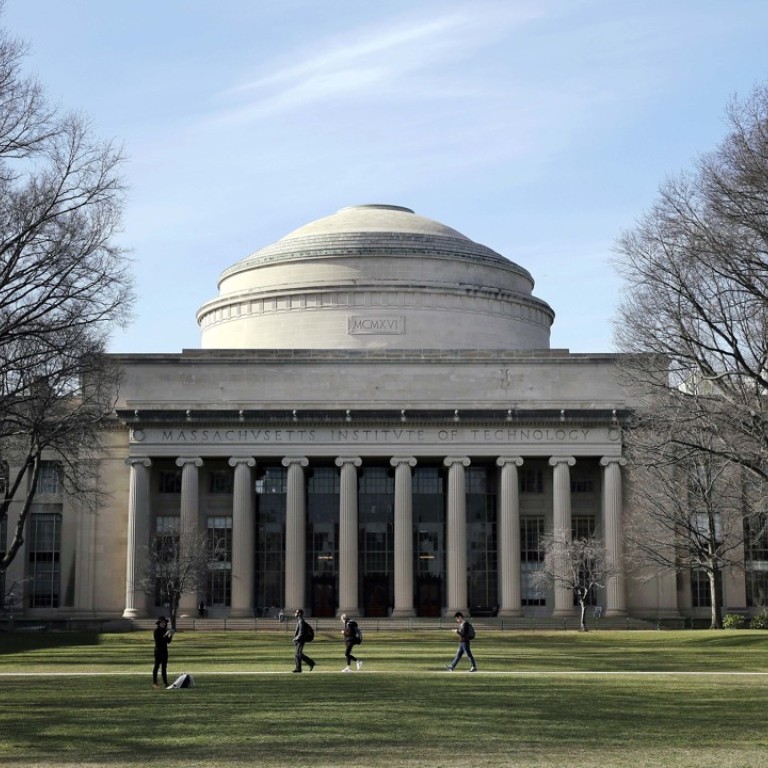
MIT invests US$1 billion in AI-focused College of Computing hot on the heels of Tsinghua’s AI centre
The practical applications of AI are huge – from diagnosing serious illnesses like lung cancer using medical imaging, to improving manufacturing processes using big data
Massachusetts Institute of Technology (MIT) is investing US$1 billion in a college for computing and artificial intelligence (AI), hot on the heels of Tsinghua University’s announcement of a new Institute for Artificial Intelligence, as major countries such as the US and China compete for top AI talent and research to drive the new digital economy.
The new MIT Stephen A. Schwarzman College of Computing, named after Blackstone’s CEO who gave a personal contribution of US$350 million to fund its establishment, will concentrate on the study of AI-related courses that affect different aspects of human life, such as education, medical care and transport, the university announced on Monday.
“As computing reshapes our world, MIT intends to help make sure it does so for the good of all,” said MIT President L. Rafael Reif, adding that the new initiative will help to reshape MIT as both a global centre for computing research and education, and an intellectual foundry for powerful new AI tools.
The practical applications of AI are huge – from diagnosing serious illnesses like lung cancer using medical imaging, to improving manufacturing processes using sensors and big data, to enhancing security and surveillance using facial recognition technology.
Major countries and companies around the world are now locked in a battle for talent and technological supremacy, with the US currently seen as being marginally ahead of an ambitious China.
AI has assumed a key role in Beijing’s ‘Made in China 2025’ master plan, which promises to lift the country’s industries – from robotics and aerospace to new materials and new energy vehicles – up the value chain, replacing imports with local products and building global champions able to take on Western giants in cutting-edge technologies.
The new MIT AI college, expected to open in the fall semester next year, will create 50 new faculty positions and many more fellowships for graduate students, according to the statement.
In June, China’s prestigious Tsinghua University announced the opening of a dedicated AI research centre – The Tsinghua University Institute for Artificial Intelligence, which will be led by Chinese Academy of Sciences academician Zhang Bo and the Turing Award Laureate Andrew Chi-Chih Yao.
The inauguration ceremony of Tsinghua’s AI institute attracted more than 300 well-known scholars and industry leaders from MIT, Stanford University, Google, Microsoft and elsewhere, according to a press release on its website.
Huawei Technologies, the world’s largest telecommunications equipment supplier, recently announced that it will continue to invest heavily in AI manpower, despite the added cost and pressure on the company’s bottom line.
China has tried to play down head-to-head confrontation with the US over AI.
Artificial intelligence needs to be viewed as an economic game-changer, whose benefits can be shared and potential problems solved globally, Chinese Vice-Premier Liu He told a gathering of AI elites in Shanghai last month at the World Artificial Intelligence Conference (WAIC).

